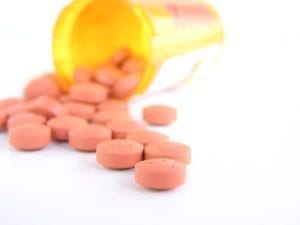Hyperkalemia
What is hyperkalemia?
Hyperkalemia is the medical term for an elevated level of potassium in the blood. Potassium is a mineral critical for the functioning of the muscles, heart, and nerves. An above normal level of potassium can complicate and interfere with the process of electric signals in the heart, which can lead to different types of arrhythmias and other heart issues.What are the symptoms of hyperkalemia?
Mild hyperkalemia can be asymptomatic, whereas more serious hyperkameia may present symptoms like:- Nausea
- Weak or irregular pulse
- Paraesthesia
- Muscle weakness
- Fatigue
- Tingling sensation or other unusual sensations
What causes hyperkalemia?
The kidneys are primarily responsible for maintaining the body’s potassium level. If intake of potassium outweighs the kidneys’ ability to remove it, or if kidney function decreases, hyperkalemia can occur. The potassium imbalance can occur from:- Kidney disease
- Potassium-high diet – especially in those with kidney disease
- Pharmacology that prevents the kidney from losing enough potassium (NSAIDs, ARBs)
- Addison’s disease
- Burns or other severe injuries
- Type 1 diabetes
- Heavy alcoholism or illicit drug abuse
How is hyperkalemia diagnosed?
A hyperkalemia diagnosis often must rely on clinical information such as a history of kidney failure or use of medicines known to cause hyperkalemia. Lab work and electrocardiographic changes can also be used to reach a diagnosis.What treatments are available for hyperkalemia?
Treatments include:- Low-potassium diet
- Intravenous administration of glucose, insulin, or calcium
- Sodium bicarbonate
- Medications that stimulate beta-2 adrenergic receptors, such as albuterol and epinephrine
- Medications known as cation-exchange resins
- Kidney dialysis
Where can I find out more about hyperkalemia?
Hyperkalemia Articles



Do NSAIDs Increase Hyperkalemia Risk in Older Individuals?
Jessica Lynn
January 19, 2022
Read More »

New Treatment Found To Reduce Hyperkalemia Risk in Those With CKD and Type 2 Diabetes
Trudy Horsting
December 3, 2021
Read More »

Insulin/Dextrose as Management for Hyperkalemia Only Transiently Effective
Alyssa Stevens
December 3, 2021
Read More »

Patients with Chronic Kidney Disease and Hyperkalemia Associated with Major Adverse Cardiovascular Events
Alyssa Stevens
December 2, 2021
Read More »








